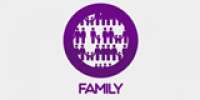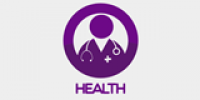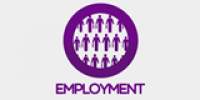10th Rainbow Europe: Confirmed stagnation and regression on LGBTI equality calls for immediate action
The Rainbow Europe 2019 reveals not only a standstill in a significant number of European countries but a visible backslide on laws and policies safeguarding equality and human rights of lesbian, gay, bisexual, trans and intersex (LGBTI) people.
|
|
| Visit www.rainbow-europe.org |
Officially unveiled today in Oslo (13 May 2019) at the annual intergovernmental Forum marking the International Day against Homophobia, Biphobia, Transphobia, and Interphobia (IDAHOBIT), the 2019 Rainbow Europe Map is sending an unequivocal message to national governments and European institutions alike: we can no longer ignore to the backlash!
Decline is indeed clearly noticeable on this year’s Rainbow Map, ILGA-Europe’s annual benchmarking tool, which ranks 49 countries in Europe on their LGBTI equality laws and policies. For the first time in the Index’s ten-year history, countries are moving backwards as existing laws and policies disappeared: Poland no longer provides access to medically assisted reproduction for single women, while Bulgaria removed all their administrative and legal procedures for changing name or gender marker in the official documents for trans people. Serbia and Kosovo did not renew their equality action plans. Bulgaria, Hungary and Turkey are countries which slide back on the ranking because of their governments’ failure to uphold fundamental civil and political rights such as freedom of assembly, freedom of association and protection of human rights defenders over the past year. The result is an increasingly unsafe and unsustainable environment for LGBTI organisations and human rights defenders in a growing number of countries.
“If ever there was a time to put high political priority on LGBTI equality, it is now! Last year, we warned about the dangers of thinking that the work was done. Sadly, this year, we see concrete evidence of roll-back at political and legislative levels in a growing number of countries. There is no more time to waste,” said ILGA-Europe’s Executive Director, Evelyne Paradis. “In the current increasingly polarised social and political climate, laws and policies are often the last lines of defence for LGBTI communities. That’s why we need national and European decision-makers to redouble efforts to secure equality in law and in practice for LGBTI people”, she added.
The 2019 Rainbow Europe also tells the story of an evolving movement. The 10th edition of the Index introduces changes in the weight given to different issues it captures. As a result, it gives a more accurate picture of what LGBTI people really need and what matters to the lives of different parts of the LGBTI communities. The message is clear: for our movement in Europe, equality and non-discrimination laws, legal gender recognition, bodily integrity, protection from hatred and violence, and family rights are all interconnected and equally essential for the full enjoyment of human rights for LGBTI people.
Micah Grzywnowicz, co-chair of ILGA-Europe’s Executive Board commented: “For years, we have said that marriage equality was an important signifier of equality, but not the be-all and end-all for LGBTI people. What is also crucial for our communities are effective laws to recognise rights of trans people to self-determination, robust protection against LGBTI-phobic violence and speech, equal access to reproductive rights, and prohibiting medical intervention on intersex children. Our revised index makes this fact clearer now. The countries that are expanding their legislative horizons to embrace this vision of equality for LGBTI people are the ones moving ahead. We are heartened to continue to see examples of governments demonstrating leadership in this direction, as Luxembourg and Finland did over the past year.”
Over the last 10 years, the legal and human rights situation of LGBTI people has dramatically changed and the patterns on the Map have started to show different stories year after year. Every year, some countries surprise us by taking significant steps towards the best existing standards, leaving other countries, once known to lead on LGBTI equality, further behind.
As Co-Chair of ILGA-Europe’s Executive Board, Darienne Flemington outlined: “To all governments who are serious about LGBTI equality, consider Rainbow Europe to be your roadmap! We know what is needed and the formula for success is obvious: Laws and explicit policies matter. Political leadership matters. Add to this mix meaningful engagement with communities and civil society and you can make a real difference in the lives of LGBTI people.”
Rainbow Europe 2019 – executive summary
Rainbow Europe – ILGA-Europe’s annual benchmarking tool – is comprised of the Rainbow Map & Index. ILGA-Europe have produced the Rainbow Map&Index since 2009, using it to illustrate the legal and policy situation of LGBTI people in Europe.
The Rainbow Map&Index ranks 49 European countries on their respective legal and policy practices for LGBTI people, from 0-100%.
|
Top 3 on the country ranking |
Bottom 3 on the country ranking |
|
|
|
|
|
|
For the fourth year in a row, Malta (90%) appears at the top of the Rainbow Europe country ranking. Belgium got the second place for the second time with their score 73%. Luxembourg now occupies third place (70%) – this is a rise of seventeen places (20th position in May 2018), mainly fuelled by the well-modified legal gender recognition law based on self-determination and a comprehensive national action plan. The three countries at the other end of the Rainbow Europe scale are Azerbaijan (3%), Turkey (5%), and Armenia (7%) completing the list of 49 countries. Turkey’s place has been decreasing since 2015.
In order to create our country ranking, ILGA-Europe examine the laws and policies in 49 countries using a set of criteria – from May 2019, the number of individual criteria used rises to 69. These criteria are divided between six thematic categories: equality and non-discrimination; family; hate crime and hate speech; legal gender recognition and bodily integrity; civil society space; and asylum.
Alterations to our criteria make year-on-year comparisons difficult but certain lessons are clear – countries that are expanding their legislative horizons are moving ahead.
|
Category |
New allocation of weight |
New criteria (More info on www.rainbow-europe.org/about) |
|
Equality and non-discrimination |
25% |
|
|
Family |
20% |
|
|
Hate crime and hate speech |
20% |
|
|
Legal gender recognition and bodily integrity |
20% |
|
|
Civil society space |
8% |
|
|
Asylum |
7% |
ILGA-Europe are also very proud to announce that policymakers, researchers and journalists are able to go ‘behind’ the dots and see the original information sources that we base our Map and Index ranking on. This additional layer of information is available through our updated Rainbow Europe web module, www.rainbow-europe.org.
The Rainbow Map&Index presents a picture of what the policy landscape is like right now, while our country-specific recommendations attempt to answer the question “what’s next?” These recommendations for national policymakers are intended to encourage policymakers to address the most pressing legal and policy priorities within the framework of our Rainbow Map&Index.
While ILGA-Europe are urging national authorities to follow these recommendations, we did not come up with the suggestions unilaterally. The recommendations were gathered following an online consultation with a wide range of LGBTI organisations in the various countries. As a result, the recommendations are tailored to the needs of activists working on the ground.
- ILGA-Europe are an independent, international non-governmental umbrella organisation bringing together over 600 organisations from 54 European and Central Asian countries. We are a driving force for political, legal and social change in the region. For more information, visit www.ilga-europe.org
- The 2019 Rainbow Europe Map and Index information will be available to access on our updated Rainbow Europe web module from 13 May at www.rainbow-europe.org. The web module is a free online collection of all the data that lies behind the map, accessible to view on your desktop, tablet or smartphone.
- Access all the Rainbow Europe background info - from 2009 to 2019 - in our resource section!
- The European Ministerial IDAHOT+ Forum 2019 takes place from 13-15 May in Oslo, Norway, with the title LGBTIQ Policies on the Move - Challenges and Next Steps.
- ILGA-Europe will be present at the IDAHOT+ Forum to discuss the Rainbow Europe 2019 results, along with NGO partners Transgender Europe and Organisation International Europe For more information visit https://idahotoslo2019.no/progam/ or contact idahot2019@bufdir.no


 Print HTML
Print HTML









